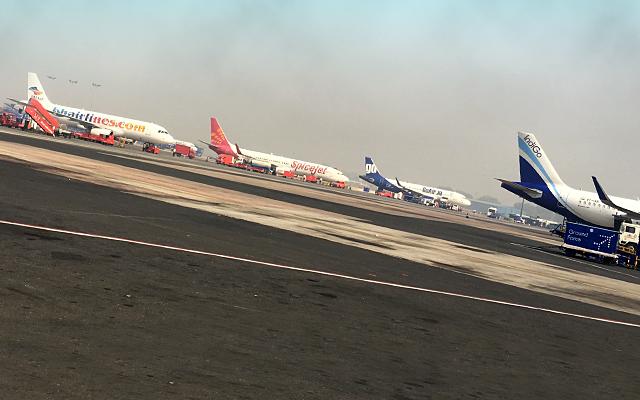India’s ministry of civil aviation (MoCA) has decided not to take a call on the vexed issue of capping air fares in the new aviation policy, leaving it for the regulator Directorate General of Civil Aviation (DGCA) to take a decision on the matter.
The new civil aviation policy will decide upon the rules and regulations for the world’s third largest growing aviation sector which handles around 20 million fliers annually.
Interestingly, the government has already engaged with the airlines twice between November 2015 and February 2016 on the issue of capping air fares. The proposal is to charge Rs2,500 per passenger for one-hour duration flights. At present, such short-haul flight tickets cost Rs4,000-5,000. However, the idea has been opposed by various airlines.
Officials at MoCA are of the view that this would seriously jeopardise the growth and financial health of the Indian civil aviation industry.
The ministry had in 2014 circulated a note for internal discussion wherein it suggested steps to cap air fares at minimum and maximum levels for the economy class.
Some ministries in the government have raised the issue concerning high air fares. The feedback is part of the inter-ministerial consultations for the new civil aviation policy, which is expected to come up for approval before the Cabinet soon.
A senior civil aviation ministry official, requesting anonymity, said that ceiling on air fares will be against the interest of the aviation industry which is recuperating from losses that have mounted over the years, when most of the carriers were bleeding and Kingfisher Airlines shut down in October 2012.
“As a matter of practice, the government does not fix air fares. It is the market forces and the airlines that take a call. The government must not over-regulate airlines by fixing air fares. That has largely been the norm in telecom and other sectors in India. Fixing air fares could be suicidal for the industry,†added the official.
Another MoCA official, who also didn’t want to be identified, confirmed the ministry’s stand and said, “DGCA being a regulator can always intervene even if we don’t have a policy on capping air fares.â€
This comes in the backdrop of DGCA plans to conduct a fare audit of 20 routes. The rationale behind the audit is to find out whether the airlines are charging unusually high fares.
“Even if capping of air fares is not a part of the aviation policy, we as the regulator can intervene,†said a senior DGCA official requesting anonymity.
MoCA is yet to take a call on formulating rules for another contentious issue of predatory pricing in the new civil aviation policy.
Considered to be an unhealthy practice followed by carriers, airlines under predatory pricing offer lower fares for a ticket booked in advance which may be for travelling eight or ten months later. Moreover, passengers do not get any refund in case they postpone or cancel their ticket.
Civil aviation minister Ashok Gajapathi Raju has on several occasions said that putting caps and floors for air fares will have implications and that pricing should be left for the carriers to decide.
Experts agree with the ministry’s view.
“In a highly competitive airline industry, capping of fares is neither practical nor advisable. Capping technically means that the government has to assure reasonable returns to airlines; like in the case of airports with regulated tariffs,†said Amber Dubey, partner and India head-aerospace and defence, KPMG India.
“Having said so, charging 8-10 times the average fare during a natural calamity or manmade crisis is clearly avoidable and MoCA and DGCA are well within their right to step in,†added Dubey.
Like this report? Sign up for our daily newsletter to get our top reports.





